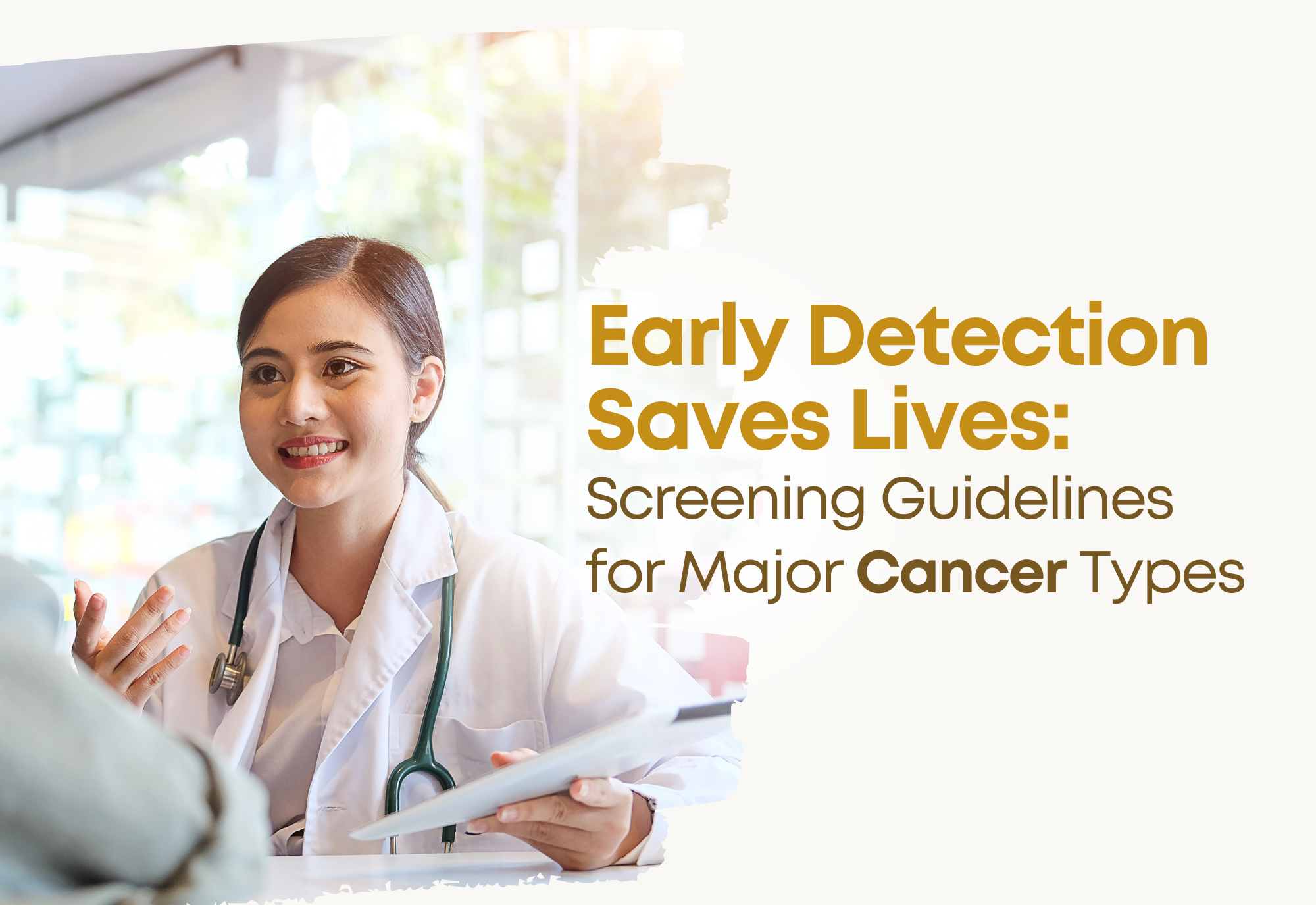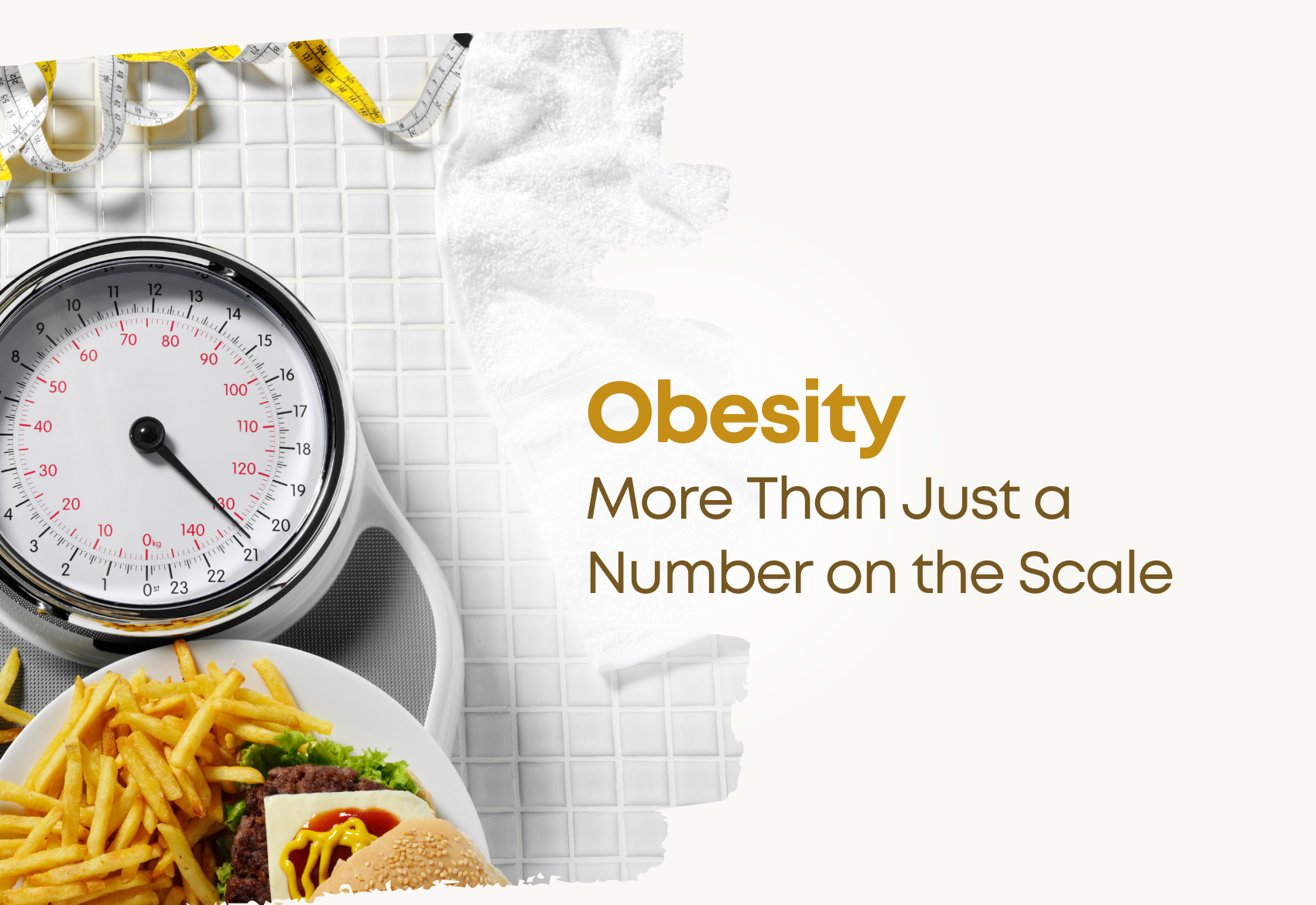Early Detection Saves Lives: Screening for Major Cancer Types
by Dr. Phan Nop, Head of Emergency Services, Wellness, and Primary Care
Cancer remains a leading cause of death in Malaysia, but early detection can significantly improve outcomes. By identifying cancer at an early stage, when treatment is more effective, we can reduce mortality and enhance quality of life. In conjunction with World Cancer Day, this article emphasises the importance of regular cancer screenings and provides guidelines for the most common types—colorectal, liver, prostate, and breast cancers.
Colorectal Cancer

Colorectal cancer (CRC) is the second most common cancer in Malaysia, as reported in the Malaysian National Cancer Registry. It is the leading cause of cancer deaths among men. The incidence is highest in the Chinese population, followed by Malay and Indian communities. The most common symptoms include altered bowel habits, bloody stools, abdominal pain, weight loss, and anaemia. Most major guidelines recommend screening for CRC from the age of 50. However, individuals with a family history, a history of inflammatory bowel disease (ulcerative colitis or Crohn’s disease), hereditary colorectal cancer syndromes, or prior radiation to the abdomen may require earlier screening.
Recommended Screening:
- Faecal Occult Blood Test (FOBT): Annually for individuals aged 45–74.
- Colonoscopy: Every five years starting at age 45, or earlier and more frequently for those with a family history of colorectal cancer.
Colorectal Cancer

Liver cancer often arises in individuals with chronic liver conditions such as hepatitis B or C, or cirrhosis. Early screening is vital for high-risk groups.
Recommended Screening:
- Ultrasound and Alpha-Fetoprotein (AFP) Test: Every six months for individuals with chronic hepatitis B or C, cirrhosis, or a family history of liver cancer.
- Targeted Screening: Particularly crucial in regions with high liver cancer prevalence.
Prostate Cancer

Prostate cancer is one of the most common cancers in men, particularly those over 50. Early detection through screening can improve treatment outcomes.
Recommended Screening:
- Prostate-Specific Antigen (PSA) Test: Men aged 50–69 should discuss the benefits and risks with their healthcare provider. For those at higher risk, such as those with a family history, screening may begin at age 45.
- Digital Rectal Exam (DRE): Often performed alongside PSA testing to assess the prostate.
Breast Cancer

Breast cancer is one of the most common cancers among women in Malaysia. Regular screenings can help detect abnormalities before symptoms appear.
Recommended Screening:
- Mammography: Women aged 40–49 should consider annual screening based on individual risk factors. For women aged 50–74, biennial mammography is generally recommended.
- Clinical Breast Exam: Every 1–3 years for women in their 20s and 30s, and annually for those aged 40 and above.
- Self-Breast Exam: Optional but beneficial for women to familiarise themselves with their breast tissue and detect changes.
The Role of SPOTMAS in Cancer Detection
SPOTMAS, an innovative specialised diagnostic test, utilises circulating DNA Multi-Cancer Early Detection technology. It enables early detection of 10 types of cancer. Similar to cfDNA sequencing technology—also known as Non-Invasive Prenatal Testing (NIPT)—used to detect genetic abnormalities in a foetus through a blood sample from pregnant women, SPOTMAS examines tumour DNA in the blood with a high level of sensitivity and specificity.
Take Action Today
Screening saves lives. By prioritising regular health check-ups and understanding your risk factors, you can take control of your health. Speak to your healthcare provider about the right screening plan for you and your loved ones. Together, we can make strides towards reducing the impact of cancer on our lives.














